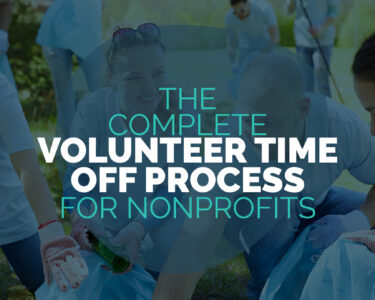The release of “Voices That Matter” from the Center for Effective Philanthropy affirms what many in the sector have long hoped: funders recognize that listening to the people at the heart of their work is not only the right thing to do, but essential to making good decisions. Encouragingly, funders interviewed for the study articulated clear, thoughtful reasons why listening matters.
But as Fund for Shared Insight and Listen4Good have noted in their responses, there’s still a wide gap between intention and practice, as well as between how much funders say they value listening and the extent to which it is funded.
“Voices That Matter” highlights that while 96 percent of foundations rely on the feedback data collected by their nonprofit partners, few directly fund the work it takes to gather, interpret, and act on that data.
A 2022 funder survey coordinated by Feedback Labs told a similar story: 64 percent of surveyed foundations ask their grantees how they listen, but only 36 percent provided support to help their grantees listen better.
Funders understand the value of listening — but acknowledging its importance is not the same as making it possible in practice.
What Do Nonprofits Need?
At Feedback Labs, we’ve been tracking how nonprofits listen through a tool called How We Listen, developed with the Irritants for Change and now integrated into Candid’s nonprofit profiles and Charity Navigator’s nonprofit ratings. The nearly 40,000 responses from nonprofits nationwide offer rich insights on how nonprofits listen — and where they need support to do so.
The How We Listen data complements the findings from “Voices That Matter” in that nearly all nonprofits that fill out the tool report that they collect feedback from the people meant to ultimately benefit from their mission. But when taking a closer look at the data, the quality of their practices often fall short.
As Valerie Threlfall points out, these gaps in nonprofit listening practice often stem from a lack of resources and support from funders. The data from How We Listen tells a similar story: when asked about their biggest challenge to listening well, 25 percent of organizations cited lack of funding, with time and capacity close behind at 22 percent. Whether organizations lack dollars or staff hours, the result is a listening practice that nonprofits and funders alike value, but that is unsupported.
How Can Funders Do Better?
Nonprofits want to listen better, but they can’t do it alone. Funders have a critical role to play in making high-quality listening feasible and sustainable. But where should funders focus to help nonprofits listen better?
Feedback Labs, in partnership with the Irritants for Change, developed the “Core Principles of High-Quality Listening and Feedback” to reflect the latest evidence about what high-quality listening and feedback look like. Reviewing the How We Listen data against the Core Principles highlights three essential areas of practice where nonprofits need funder support to improve their listening practices:
1. Center the Voices of People Who Are Least Heard
“Voices That Matter” underscores that listening must prioritize those who have been historically marginalized. However, only 54 percent of the nonprofits that have filled out How We Listen report that they take steps to get feedback from marginalized or underrepresented people, and fewer than half look for the patterns in feedback based on demographics that would help them understand who they’re hearing from.
When asked how their organizations use the feedback they collect, the least common response was to identify gaps in inclusivity.
Centering underrepresented voices isn’t just about fairness — it’s about making better decisions. By investing more in nonprofits’ ability to prioritize listening and acting on feedback from people who are historically underrepresented in their listening efforts and most affected by inequities, funders can help nonprofits avoid unintended harm and uncover solutions they may otherwise overlook.
2. Report Back to Constituents
One of the largest gaps highlighted by How We Listen is the failure to “close the loop,” with relatively few organizations sharing what they heard from constituents and how they will act in response. A mere 17 percent of respondents say they share the feedback they receive with the people they serve. And while nearly 90 percent report acting on the feedback they receive, only 51 percent tell the people who gave them feedback how they responded.
How We Listen respondents also said that getting people to respond to requests for feedback is the biggest challenge they face in their listening practice — a phenomenon Feedback Labs has seen exacerbated when a community never hears back on how their feedback was used.
And it’s not just nonprofits that struggle in this area. The data from “Voices that Matter”tells us that fewer than 30 percent of foundations “always” close the loop with community members in their listening practices.
3. Be Transparent and Participatory
High-quality listening and feedback processes should make clear how input will be used and involve constituents in designing the process and interpreting what’s heard, rather than extracting information without meaningful engagement. Sixty-eight percent of How We Listen respondents say they work with the people who give them feedback to figure out how they should respond — but only 34 percent ask their constituents how well they think they responded.
Closing the Gaps in Listening Practice
It’s encouraging that “Voices That Matter” confirms that funders recognize the vital role of listening. But valuing listening isn’t enough. To turn intention into impact, funders must invest in the practices and capacity that make high-quality listening possible.
To get started, funders can offer their nonprofit partners capacity-building support in listening — as Gitlab Foundation does through its Learning for Action Fund — or by funding grantees to access feedback training or to participate in Listen4Good’s feedback capacity-building program. The Fund for Shared Insight offers tailored resources and case studies for funders looking to improve their own practice and support that of their partners, and at Feedback Labs, we coordinate a funder community of practice designed specifically for funders who want to support and advocate for a more robust listening ecosystem in the sector.
We hope that funders can use the insights in “Voices That Matter”as a launch pad to move beyond rhetoric and commit to the principles of high-quality listening through concrete action and resourcing. Let’s seize this opportunity to not just value listening, but to practice it in high-quality ways that build trust and center equity.
Britt Lake is the CEO of Feedback Labs. Find her on LinkedIn. Michael Gale is the Manager of Field Building at Feedback Labs. Find him on LinkedIn.
Editor’s Note: CEP publishes a range of perspectives. The views expressed here are those of the authors, not necessarily those of CEP.
👇Follow more 👇
👉 bdphone.com
👉 ultractivation.com
👉 trainingreferral.com
👉 shaplafood.com
👉 bangladeshi.help
👉 www.forexdhaka.com
👉 uncommunication.com
👉 ultra-sim.com
👉 forexdhaka.com
👉 ultrafxfund.com
👉 bdphoneonline.com
👉 dailyadvice.us




